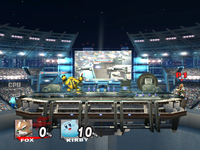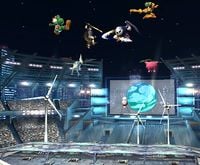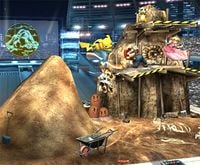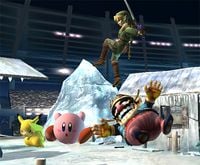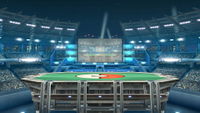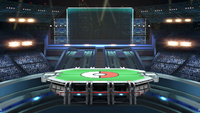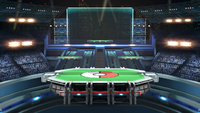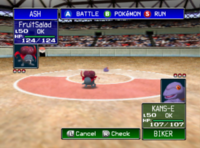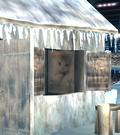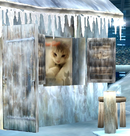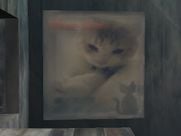Pokémon Stadium 2
Not to be confused with Pokémon Stadium.
| Pokémon Stadium 2 | |
|---|---|
{{{content1}}}
{{{content2}}}
{{{content3}}} Pokémon Stadium 2 across the series. 
| |
| Universe | Pokémon |
| Appears in | Brawl SSB4 (Wii U) Ultimate |
| Availability | Starter (Brawl and Ultimate) Unlockable (SSB4) |
| Unlock criteria | Clear the When Lightning Strikes event. |
| Crate type | Futuristic (Brawl) Normal (Wii U and Ultimate) |
| Maximum players | 4 (Brawl) 8 (Wii U and Ultimate) |
| Article on Bulbapedia | Pokémon Stadium 2 (stage) |
Pokémon Stadium 2 (ポケモンスタジアム2, Pokémon Stadium 2) is a stage in Super Smash Bros. Brawl, Super Smash Bros. for Wii U and Super Smash Bros. Ultimate, based on the Pokémon universe.
In Brawl, Jigglypuff is fought here in its unlocking battle, while in Ultimate, Pichu is fought here in its unlocking battle.
Stage overview
General overview
Overall, this stage works very similarly to Super Smash Bros. Melee's Pokémon Stadium: it switches from a basic version to type-inspired transformations. The layout of the basic version is extremely similar to the Melee version, with a main platform with a solid pillar underneath and two floating soft platforms on the sides. The background features a crowd, much farther away than the one in the original Pokémon Stadium, and a jumbotron which, like the one in Pokémon Stadium, displays either the battle, a symbol denoting the upcoming transformation, or the current standings of each fighter and the time remaining.
The other transformations, however, are all completely new. Like in Pokémon Stadium, they appear in no specific order and it is even possible for the stadium to change into the same type twice in a row. However, the stage always begins on the standard arena and has to revert back to its normal state before transforming again. Several Pokémon appear in the background during the various phases, with no actual effect on the battle.
Electric Version
The Electric version features two slightly raised conveyor belts which occupy the sides of the main platform, both pushing outwards. The center of the main platform is static. There are three soft platforms in varying locations: two, one above the other, are over the middle of the stage, while the third can be over either conveyor belt.
An Electivire appears in the background on the left side, and a Magnezone pops up and down on the right side hiding behind the machinery.
Flying Version
The Flying version features fans in the ground which create an updraft, severely lowering the gravity: all characters' jumping abilities are enhanced and their falling time is increased. Characters flung upward have a much higher chance of being Star KO'ed. The updraft only extends above the platform. No other platforms are present, giving the stage a Final Destination style layout. The floor is also slightly raised. In SSBU, there is also a small amount of upwards wind.
A Drifloon, a Hoppip, and a Skarmory fly about in the background.
Ground Version
In the Ground version the layout changes to a large solid mound of dirt on the left and a hut built into a tall rock on the right. The hut provides two platforms, the lower one being longer and curved, and the higher one being short and flat. No physics alterations are added.
A Cubone and a Dugtrio appear in the background, along with a fossil (possibly a Helix Fossil) embedded in the rock.
Ice Version
In the Ice version all platforms and surfaces become extremely slippery, so characters are more likely to trip. A hut can be seen in the background, and there are two icy platforms that slope inwards slightly.
A Snover always appears in the background, and a Snorunt might appear in the hut.
8 Player
In Super Smash Bros. for Wii U, during a 8-Player Smash the stage always remains in its basic form and the screen in the background is blank.
Ω forms and Battlefield form
In Super Smash Bros. for Wii U, the Ω form only features the basic version of the stage, with the floating platforms removed but the pillar at the bottom still present. The jumbotron doesn't display any stats and will only show the battle in progress without zooming into any of the characters (except in 8-Player Smash, where the screen will be entirely blank).
In Super Smash Bros. Ultimate, the main platform of the Ω form and Battlefield form is identical to SSB4's Ω form; however, it is resized and reshaped to match Final Destination and Battlefield, respectively. The three soft platforms of the Battlefield form are based on the ones in the normal form. The jumbotron only displays the current stage, the current leader, and will focus on one of the fighters. Each segment will be displayed for five seconds before blanking out for one second and then showing either the same or a different segment.
Hazards Off
With hazards off in Ultimate, the stage remains in the default form for the whole match.
Origin
Like its predecessor, this stage seems to be based on the arenas from the Pokémon Stadium series. Its name could be a reference to the game Pokémon Stadium 2 (either Japanese or international) for the Nintendo 64.
The flying transformation's aesthetics are reminiscent of Valley Windworks from the Sinnoh region: they both feature wind turbines and, in Diamond/Pearl/Platinum, the Valley Windworks was the only location where a Drifloon, like the one appearing on this stage, could be encountered.
The electric transformation's mechanical appearance could be a reference to the recurring Power Plant setting in the series, where Magnemite, Magneton and Electabuzz (the previous forms of Magnezone and Electivire) can be often encountered.
Tournament legality
Brawl
Pokémon Stadium 2 is a very controversial stage; it is usually banned in tournaments, although it is allowed as a counterpick in more liberal rulesets. This is because the majority of its transformations are widely considered disruptive to normal gameplay: the electric transformation produces fast conveyor belts that force players to camp the ledge or fight in the middle of the stage; the wind transformation significantly reduces gravity, which slows aerial approaches and results in earlier vertical KOs; and the ice transformation creates slippery terrain which universally decreases traction and slightly increases tripping chance, making more precise movements difficult. Additionally, like the original Pokémon Stadium, all of its transformations except for ice are susceptible to camping.
Some smashers, however, debate this stage's banning, arguing that its perceived disruptive elements are either due to player error or actually beneficial to gameplay. For example, they claim that players can camp out the electric transformation, and that any self-destructs are due to unfamiliarity with the stage rather than a flaw in the stage itself. They also argue that the wind transformation, while actually disruptive, does not last long enough to significantly impact the match. Finally, they suggest that the ice transformation actually enriches gameplay because its terrain boosts the speed and slide distance of DACUSes and slide smashes, and causes shields to be pushed back more, forcing the game to be played more offensively.
Regardless, Pokémon Stadium 2 remains often banned due to the very specific ways in which players have to adjust to the disruptive nature of transformations.
SSB4
Pokémon Stadium 2's physics changes have been seen as detrimental to the flow of the match and the stage is banned in Smash 4.
Ultimate
Pokémon Stadium 2 is a starter stage in Ultimate tournaments, though only when deactivating stage hazards since doing so disables the stage's transformations. In some tournaments, it is banned in favor of its predecessor Pokémon Stadium.
Update history
- Added 8-player mode version of the stage and its Ω form.
- The "Current Leader" segment now displays the names of all leading characters, much like in Pokémon Stadium.
Gallery
Super Smash Bros. Ultimate
- SSBU-Lucas vs Zelda vs Samus Aran vs Marth.PNG
Lucas, Zelda, Samus, and Marth fighting with the Final Smash Meter equipped on the stage.
Trivia
General
- The cabin in the stage's Ice mode features a poster of a kitten within its walls. The identity of the cat is unknown, though it was heavily rumored to be Masahiro Sakurai's before he eventually stated this was not the case.[1] Despite the stage's visuals being updated, the cat poster still appears in the stage's appearance in Ultimate.
- Unlike the Melee Pokémon Stadium, characters fly in front of the screen in the background when Star KO'ed.
- If Fox is chosen in a mini, light Special Smash, using his forward air in quick succession while the arena is set as Flying type will cause him to accelerate upwards infinitely, allowing him to move upwards at incredibly high speed.
- This stage shares its name with the Pokémon game Pokémon Stadium 2.
Super Smash Bros. Brawl
- When playing as Wario or Wario-Man, using a fully charged Wario Waft on the Flying stage will result in an instant Star KO, even from the ground.
- In the original Dojo screenshot of the Flying element of the stage, Drifloon and Hoppip are shown much farther away than in the final version of of the game.
- If the player looks at the jumbotron looking through Luigi's Negative Zone, the true colors can be seen there due to the double negative effects.
- This can also happen if a hack is used to perform Double Final Smashes.
- If Zero Suit Samus is currently on the stage, the jumbotron will display her name as "Samus" instead of "Zero Suit Samus". This also happens in Pokémon Stadium and PictoChat.
Super Smash Bros. for Wii U
- The stage's Pokémon who appear as background character in this stage do not have individual trophies.
- In Training Mode, the names of all three CPU opponents, even the two that are not present on the stage, will appear on the jumbotron when displaying the current combatants.
Super Smash Bros. Ultimate
- When playing a game of Squad Strike, the names of the characters on the jumbotron will not change until it updates itself. This also happens on Pokémon Stadium.
- This also happens when adding more CPU opponents in Training Mode.
- A similar effect also happens on the Pokémon Multi Battle! event in Super Smash Bros. for Wii U.
- On the jumbotron, the names of all the characters on either the "Current Stage" or "Current Leader" segments matches the color of their player slot.
- When playing in a Team Battle, the jumbotron displays all character names in the order of red, blue, green, and yellow in column format.
- In Team Battles, the jumbotron only displays the names of all characters with the highest score/stock count rather than the winning team.
- In either a Stock or Stamina match, if a player slot is skipped, the jumbotron sometimes displays the wrong player number if a player loses their last life. For example, in a 3-player Smash involving P2, P3 and P4, if Player 2 gets defeated, the jumbotron displays "Player 1 Defeated" despite player 1 not being present.
- Oddly, when playing this stage in either Battlefield or Ω form, the jumbotron does not display the starting/final countdown of the match, the "GO!" text at the start of the match, text showcasing which player has been eliminated (e.g. "Player 2 Defeated"), or text at the end of the match (e.g. "TIME", "GAME", etc.). This oddity is not present in Pokémon Stadium.
External links
References
